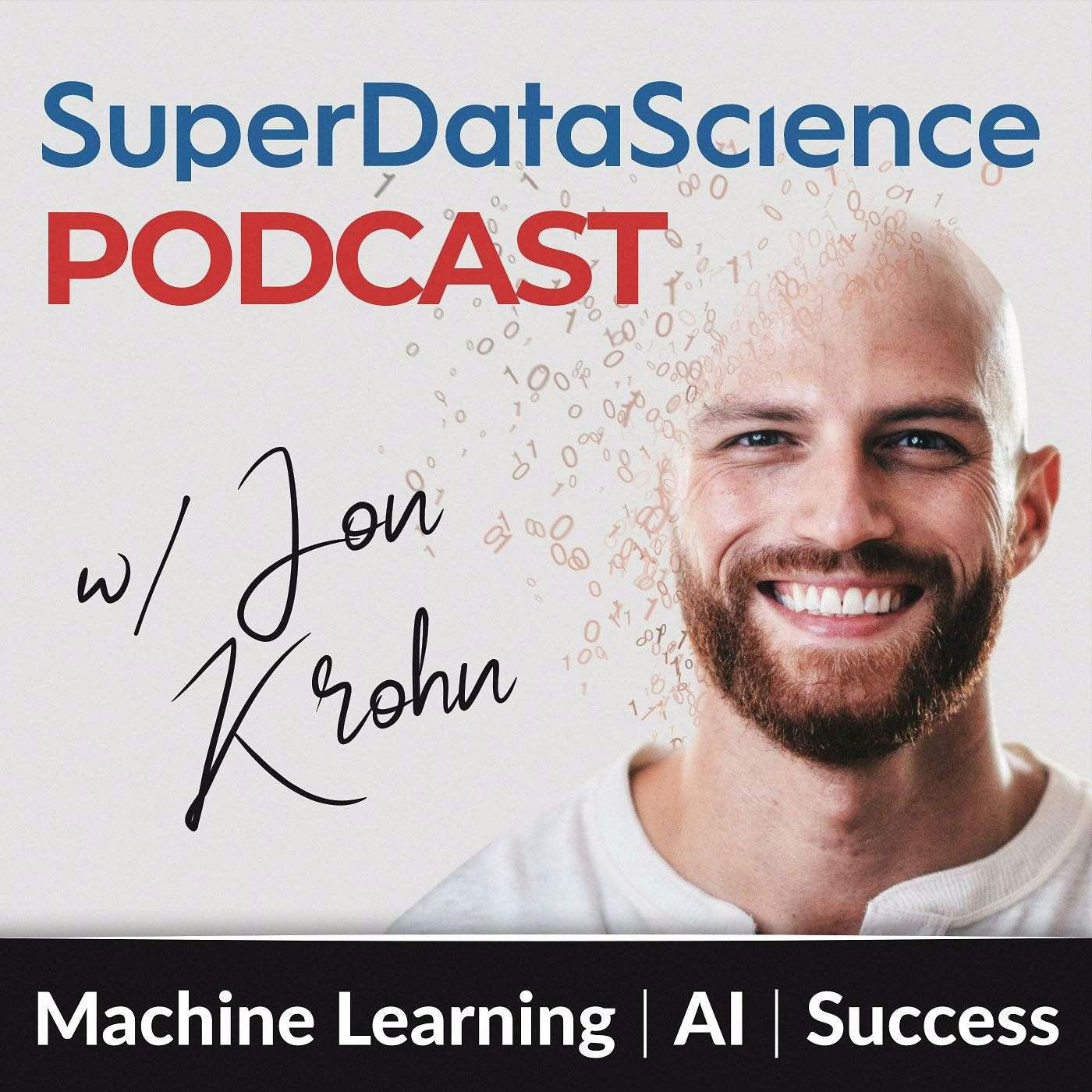
898: My Four-Hour Agentic AI Workshop is Live and 100% Free

Super Data Science: ML & AI Podcast with Jon Krohn
Deep Dive
Shownotes Transcript
This is episode number 898 on my new four hour 100% free training on agentic AI in Python. Welcome back to the super data science podcast. I'm your host, John Krohn. Today's episode is a short five minute Friday to let you know about my brand new four hour agentic AI workshop available in its entirety on YouTube 100% free.
If you're a regular listener to this podcast, you may already be aware of the shift toward powerful and flexible multi-agent systems. These are AI teams where different agents specialize in different tasks and collaborate to solve complex problems. Think of it like assembling a team of experts rather than relying on a single generalist.
If being able to develop and deploy multi-agent teams is something you're into, I'm delighted to let you know that my workshop covers everything you need to know to do this in Python. This isn't just theory, it's deeply practical hands-on training that was filmed professionally at the Open Data Science Conference East, ODSC East, in Boston a few weeks ago. I lead all of the parts on theory and context, while my brilliant longtime friend and colleague Ed Donner, who was my guest on this podcast in episode 847,
and who many of you may know as one of the best in the world at teaching AI hands-on thanks to his prolific teaching in O'Reilly.com and his wildly popular Udemy courses. So yeah, so Ed leads all the practical parts of this workshop.
The workshop is structured into four comprehensive modules that build on each other. The first module focuses on defining agents, understanding what they are, how they differ from traditional AI models, and why multi-agent architectures are becoming so important. We explore the fundamental concepts that underpin agent-based systems and establish the vocabulary you'll need throughout your journey.
In this first module, we work with the OpenAI Agents SDK, a new, fun, and easy-to-use framework that provides a robust foundation for building agents while maintaining the autonomy and specialization that makes agent-based systems so effective. Next, in Module 2, we dive deeper into best practices for designing agents. We cover how to decompose complex problems into specialized roles, how to establish clear communication protocols between agents, and how to ensure your multi-agent system remains coherent, safe, and manageable as it scales.
To do this in practice, we leverage Crew AI, which has gained tremendous traction in the developer community for its intuitive approach to orchestrating multiple agents. Crew AI makes it remarkably straightforward to define agent roles, establish hierarchies, and manage the complex interactions that emerge when agents collaborate on tasks.
In the third module, we dig into Anthropics Model Context Protocol, or MCP, which is very popular right now and allows us to easily connect agents to tons of tools and capabilities. MCP focuses on giving agents rich, persistent context about their environment and tasks, enabling more sophisticated reasoning and decision-making.
By the end of all of this, we're able to create a team of agents that represent the key roles of a software development team. And this team creates a working software application for us that, in the example we do in the workshop, allows agents to buy and sell stocks using real-world market data within a simulated environment. But you'd be armed after this training to create a team of agents that handles any kind of software development task or other kinds of
tasks in your organization or enterprise. Nice. And then after all of that, in the fourth and final module, we look toward the future of agents. We examine emerging trends, including what highly capable teams of agents mean for the future of work, including the future of data scientists' work, and how AI can dramatically transform our world for the better in the coming decades.
The production quality of this workshop is exceptional. We had a professional film crew capture every detail, including audience questions, and our podcast's own editing maestro, Mario Pombo, crafted the footage into a beautiful, seamless learning experience. The result is content that I think you'll find as engaging to watch as it is informative.
When we delivered this workshop live at ODSC East, the response was awesome. The lecture hall was standing room only for the entire four-hour duration, and the feedback we received was uniformly positive. Attendees particularly appreciated the balance between conceptual understanding and hands-on implementation. And now you can enjoy it all 100% free, including ad-free, on my YouTube channel. We've got a link for you in the show notes, of course. This
This is an exciting time to be working with AI and multi-agent systems represent one of the most promising frontiers. I can't wait to see what you build with these powerful new capabilities. All right, that's it for today's episode. I'm John Krohn, and you've been listening to the Super Data Science Podcast. If you enjoyed today's episode or know someone who might, consider sharing this episode with them. Leave a review of the show on your favorite podcasting platform. Tag me in a LinkedIn post with your thoughts. And if you aren't already, be sure to subscribe.
to the show. Most importantly, though, we just hope you'll keep on listening. Until next time, keep on rocking it out there. And I'm looking forward to enjoying another round of the Super Data Science Podcast with you very soon.